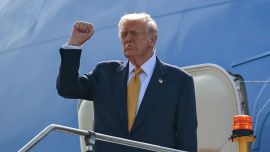The Milei administration is beginning to wane after an initial spark of hyperactivity.
Coming in hot from a massive electoral upset, President Javier Milei and his La Libertad Avanza coalition made true on their condition of political outsiders and sought to reset the Argentine socio-political-economic ecosystem through an emergency decree and a bill that together included nearly 1,000 reforms. Many of the changes had nothing urgent about them, and at the same time the reform package was indecipherable due to its depth and complexity, making the measures all-but impossible to pass in just a few weeks. The Judiciary has already stayed part of the reforms, specifically those tied to labour reform, while Interior Minister Guillermo Francos is negotiating with provincial governors regarding some controversial issues, such as regulations tied to commercial fishing which could have opened the door to foreign incursions on Argentina’s exclusive economic zone.
Rumours of infighting between hawks and doves, something we are more than used to here, and potential resignations hit the front pages, forcing Presidential Spokesperson Manuel Adorni to refute them, therefore giving them some sort of credence.
It’s not the first time Francos’ resignation has been reported and then denied. As the agonising effects of runaway inflation spread through the economy, impacting essentially everyone, questions regarding the loyalty of Milei’s support base mount. Some are once again raising the issue about whether he’ll make it to the end of his term. Time, it feels, is flying by at a dizzying speed, as circumstances which often take months and even years to unfold have occurred in just a few weeks.
It’s not clear whether this is the “best plan,” the “only plan,” or “no plan,” but it does feel like it is all part of what the Milei administration could, and should, have expected. If this were so, then it would be bread and circuses to distract the media and the public attention in an attempt to give themselves enough breathing-room to make it through March, when inflation is expected to begin to drop on the back of a fierce austerity drive which will deepen a brutal recession for most if not all economic actors. If this were to occur and society believed in the “fiscal anchor” proposed by Economy Minister Luis ‘Toto’ Caputo, there’s a chance of a quick deceleration of inflation going into the second half of the year, together with an increase in wage purchasing-power which eventually would help to put the economy back on its feet. But these are too many assumptions in such an unstable and unpredictable country for a president to go all-in on during the first few months of his presidency – either Milei is a daredevil who is convinced he’ll make it out alive, he has no choice and is winging it, or he’s got a couple of cards up his sleeve that we’re not seeing.
Most newly elected presidents enjoy a honeymoon period with society as a consequence of their success, giving them a political capital superior to the specific value of the votes they attainted. Milei went from zero to hero in just two years, pushing the more-powerful Juntos por el Cambio coalition over the precipice as Horacio Rodríguez Larreta and Patricia Bulrrich seemingly missed a penalty against no goalkeeper and Mauricio Macri decided to finish the ball himself. La Libertad Avanza managed to overpower the potent Peronist machine commanded by none other than the sitting economy minister, Sergio Massa, who had effectively displaced President Alberto Fernández in the conductor’s seat. He promised hardships and Austrian austerity in order to eradicate Kirchnerism, wokeism, and inflation. Now, he and his supporters are standing their ground, appealing to their supposed intellectual honesty with the electorate, which contradicts the infamous dictate attributed to former president Carlos Menem, in which he said: “If I told them my plan, they wouldn’t have voted for me.” (Milei also noted he would chop off an arm before raising taxes but hasn’t announced when he’ll be doing that yet. Libertarian white lies.)
Milei basked in his “peak honeymoon” stage immediately after the election and upon taking office. He promised “blood, sweat and tears” and had Caputo announce an economic plan which promised to push inflation higher. Then he commanded former Central Bank governor Federico Sturzenegger to become the guardian of the overarching reform package passing as a DNU emergency decree and a set of bills sent to Congress. Both of them, recycled from the heydays of Macrismo. While Sturzenegger honestly believes all of those reforms are necessary, it is evident that such an ambitious package would never pass without strong political support and therefore congressional alliances become a must. Furthermore, it was impossible for the Judiciary to turn a blind eye despite a history of favouring the political winner of the moment. Supreme Court Chief Justice Horacio Rosati had already been explicit about putting limits on the Executive Branch if it overstepped the boundaries. At the same time, for Congress to properly analyse and debate the reforms (even if it actually worked efficiently) would necessarily take time, months, if not years.
Logic would suggest that all of this was part of the plan, and that, as Milei has said, the next step will be a plebiscite. If he were acting rationally, which appears to be the case, he would only engage in said plan if he had a real chance of winning, because a defeat could be read as a popular vote of no confidence and lead to an accelerated and dangerous weakening of his government. If they didn’t have the numbers, the Milei crew and its sophisticated digital communications team could probably muster together something which looks and feels like a plebiscite and produce the expected result. If they managed to distract the public for several weeks speaking about the constitutionality of the DNU decree, about the specific reforms included in the bill, and now about the legality of this method of government which seems to contradict the best practices of Argentine democracy (which doesn’t work too well, to be honest), isn’t it plausible to imagine that this could be stretched even further if a Supreme Court decision and a plebiscite are on deck?
The question is once again whether this was the best plan or the only plan. Juntos por el Cambio proposed a similar one, with Rodríguez Larreta suggesting he would have 100 hours and not 100 days to turn around the economy, expecting widespread discontent but seeking during the election campaign to put together a 70-percent supermajority to achieve it. Bullrich was originally working with Sturzenegger and ultimately brought on orthodox economist Carlos Melconian to her team. Even Massa, with Gabriel Rubinstein as his deputy minister, was expected to go in this direction, albeit substantially slower. Milei’s shock therapy has pushed inflation even higher in an attempt to dilute debts and the deficit while attempting to correct price distortions. Will society tolerate these price levels?
The issue of governability was always on the table, and Milei’s response appears to be to put on a show of political force by trying to bypass Congress and ultimately moving forward with a referendum. Will this guarantee continued social support and the capacity to confront with actors such as the union sector, led by the General Confederation of Labour (CGT) umbrella grouping, when it marches on the capital? All of these were the “known unknowns” which could be seen from a distance. And what of the “unknown unknowns” we still haven’t pictured? We’ll have to see how things play out.























Comments